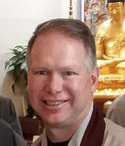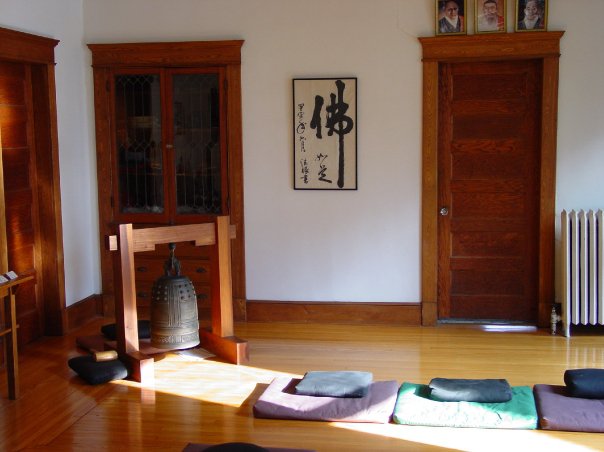-
Content count
277 -
Joined
-
Last visited
-
Days Won
5
Everything posted by Keith108
-
Meh...that's like the endless DDJ translation debates. It doesn't change anything. I am a practitioner, not a scholar. But, thanks for the side-note.
-
Dharma is skillful means. Ultimately, there is no Dharma. See the Heart Sutra Not a teacher though, so ymmv... edit: Btw, I love the agnostic shelf...I have many ideas up on that thing.
-
This place is pretty cool. There is another forum I hop into once in a while. They have different streams of Buddhism, and basically, people aren't allowed to troll other groups in their own forum. For instance, the post above wouldn't be allowed, because this is the Buddhism forum. It's basically trolling. But, I don't think we should be so soft as to not brook a little disagreement. I have no response to the post, as it's gibberish from a Buddhist perspective. But, it's nice that this hasn't turned into a flame war. _/|\_ Keith
-
Hi Tommy, I would say whatever "knowledge" I might have, is built with bricks of silence. So, empty space indeed. Some basic intellectual understanding of core teachings of the Buddha has been helpful. But, in the end, our karma is unwound through silent practice, in my case, looking at the question "What am I?" You have described a very pernicious trick the ego does. The idea of a self, the ego, has only two jobs. 1. To try and be happy in a world where lasting happiness is impossible. 2. To not die. In order to accomplish 2, it will stop at nothing. That's why we have to let go of absolutely everything. Nothing remains, our true nature shines brightly. Or something like that. I don't know. Practice and see what happens. And, when something unshakeable appears, help others to see that too. We all "know" more than we think. Every human being on this planet has innate Buddha Nature. Yet, most of us, including me, are trapped in mind prison created by thoughts. Thanks for your kind reply. _/|\_
-
Ha! Don't be sorry. There is a very good chance I don't know what the hell I am talking about! I am not a Buddha, or enlightened, or even a very good student. But, my understanding is that Buddha's experience all that is part of being a human being, they just aren't attached to those experiences. So, perhaps I misspoke. There is happiness, but no attempt to hold it. There is sadness, just no attempt to push it away.
-
Sure. I happened to be reading this passage from the Platform Sutra this morning (Chapter 6, emphasis mine): "...The third is the Incense of Prajna, which means that our mind is free from all hindrances, and is constantly perceiving our Essence of Mind with wisdom. Here we refrain from evil deeds and cultivate good acts without being attached to them. We are respectful towards our superiors and considerate of our inferiors. Also, we are sympathetic to the destitute and the poor." As you say, in the Absolute, there are no worries. But, there is no happiness either. Just equanimity. Doing not-doing, without a doer. Maybe... That's just how it looks from over here. _/|\_ Keith
-
That's spiritual bypassing. Nothing to the with the Absolute.
-

The Daodejing that is punctuated is not the eternal Daodejing
Keith108 replied to Taomeow's topic in Daodejing
Endless hand wringing, navel gazing, and gate keeping about translations of the Daodejing are not the eternal Daodejing. (Sorry, feeling a bit pugnacious) 🤪 -
When I was flown over to Korea in the military, I had no idea squat toilets existed. I also noticed right away that Korean are very comfortable in the deep squat position. It seemed to be the default position when waiting for something (bus stops, etc), or even just an outside conversation, especially in the country. I find it very useful for keeping the lower back limber and the hips open.
-
Ah…so not samadhi then.
-
Over 30 years, my friend. 😀
-
My wife loves it when I say: "when you say something important, I will start listening." Just kidding, she doesn't love that...
-
Thanks Mark! I remember reading a talk from Ajahn Buddhadasa, and thinking, this guy sounds like a Zen Master. Turns out he got in some trouble for teaching moment to moment DO, instead of lifetime to lifetime (See his book: Under the Bodhi Tree). Obviously, the Pali Canon is a tremendous wealth of teaching, and I have benefitted greatly from it. My quibble is not seeing it for what it is...how Buddhism developed when it left India and went to Southeast Asia. Here in the West, it gets interpreted as the original and "true" form of Buddhism. It isn't, as direct and useful as it is. Thanks for the "one pointedness" words. I always thought that was samadhi, which is something that happens while practicing, but not the goal. When I have experienced it, it felt like noticing everything in my field of experience, nothing left out. Like a spreading out of attention where everything is noticed. Nice, but not the point. I teach newcomers to allow our body's energy, our breathing, and our attention to settle down to the center (dan tian). That way there is no pushing or forcing activity, just a settling. I ran into a Tai Chi teaching that says: relaxed upper body, dynamic center, stable base. Great instructions for sitting! _/|\_
-
The first precept is: "I vow to abstain from taking life". The way I have been taught the precepts is they are not closed. In other words, sometimes it's necessary to break a precept. I imagine it's different for other traditions, but I don't know. So, for me and the precepts I have taken, it's always situational, and we use our wisdom to determine the correct course of action in any given situation. The precepts have only one job - help us wake up. They aren't there to judge others, or to be an ironclad code of conduct. I don't know anything about the Tibetan stuff and Milarepa. Karma unwinds in it's own time. There is a saying that goes something like: "If you want know your future, look at what you are doing right now." _/|\_
-
Breatharianism is absolutely not even remotely related to fasting, and is a dangerous, cult-like pursuit. I recommend removing this thread.
-
As with good and evil, the three times (past, present, and future) are empty. They have no self nature, and are illusions that keep us locked up in our "self" prisons. I know that sounds crazy but, at least from a Buddhist pov, it's a pretty key teaching. My signature quote starts with some good instruction about how to practice, and then the last line. The last line says essentially, all of the past, present, and future are contained in this moment. One mind moment/infinite kalpas. But, now I am drifting from the topic. Ch. 2 in the DDJ seems to point to these apparent paradoxes of time and good vs. evil: ~ 2 ~ When the whole world knows the pleasing to be pleasing This ends in despising When all know the good to be good In the end there is “not good” Thus, existence and non-existence are born together Difficulty and ease result in each other Long and short are compared to each other Above and below are opposites of each other Noise and tone are harmonized by each other Front and back accompany each other Therefore, sages handle affairs with non-action They practice wordless instruction And the myriad things all take their places Without responding Given life, but not possessed Acted for, but not expected of Perfection is cultivated, and not dwelled upon Surely, what is not dwelled upon Does not leave Gong, Heshang; Lao Tzu. The Heshang Gong Commentary on Lao Zi's Dao De Jing (2nd edition) (p. 46). Center Ring Publishing. Kindle Edition. _/|\_
-
One time, I asked my teacher: "when will evil end?" He replied: "when you stop doing good". KInd of a zenny answer, but also very deep. Some years ago, a rather eccentric friend of my mine once remarked that evil was necessary to balance good. Kind of a yin/yang thing. That's always been interesting to me. Every time humans try to create a utopia, it's a disaster. It seems we can't function with just the light. I still like ruminate on this one, because it runs against the grain for me. But as OldBob mentioned above, some deep ideas to think about. _/|\_
-
So, neither of us knows the truth. My idea is that the world has been ebbing and flowing with good and evil/immorality since beginningless time. One term for that is samsara. There was a time when you were just minding you own business in some village somewhere, and a hoard of barbarians would ride in and kill all the men, rape all the women, and burn the place to the ground. That's pretty evil, just a different kind, I suppose. In my opinion, it's not any better or worse these days. We are just more aware of it thanks to the little rectangles we carry around all day, filling our minds with little bits of info and mis-info. Opinions are like a$$holes though. Everyone has got one and they all stink. And when, we attach to our opinions, our beliefs, our ideas, we cause suffering for ourselves and the world. The way to cut that particular feedback loop is to wake up from the delusion of our "I, me, my" prison. And then help others do the same. _/|\_
-
This. If all one sees is evil, then the world is evil. Turning off the news and not doom scrolling all the time helps to see things as they are. Good and evil are always present. Originally though, good and evil are empty. Now, where do thoughts come from? That's the question that liberates. _/|\_






